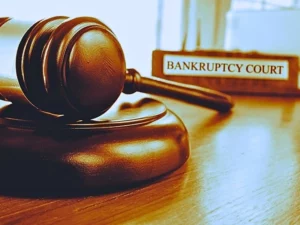What Property Is Exempt in a Chapter 7 Bankruptcy?
Under Chapter 7 bankruptcy laws, debtors are allowed to keep certain property, regardless of their specific financial circumstances and the amount of debts owed. Although part of the debtor’s property may be subject to repossession by lien holders if the property was pledged as security for a loan and the payments aren’t made, equity in the property is protected by exemptions laws.
Property Exemptions
A Chapter 7 bankruptcy provides no repayment plan for an individual’s debts. In this type of bankruptcy, often referred to as liquidation bankruptcy, a trustee gathers the debtor’s nonexempt assets and sells them to pay debts owed to creditors and other entities. However, under asset protection laws, certain property is exempt from liquidation. Although the property that is considered collateral for a loan is not protected, equity in the property is protected by exemption laws and may afford borrowers certain rights against second or third lien holders or holders of judgment liens. Chapter 7 bankruptcy exemptions protect assets to allow debtors to have a fresh start.
Although there are certain protections under federal bankruptcy laws, property exemptions vary from state to state. The federal bankruptcy code provides a list of exemptions, but Nevada residents must follow state laws. In Nevada, Chapter 7 bankruptcy filers are allowed the following property exemptions:
- Real Property – A Nevada homestead exemption for real property or a mobile home up to $550,000. The limit cannot be doubled for spouses who are filing together.
- Motor Vehicles – A motor vehicle up to $15,000. There is no limit for vehicles that are equipped for people who are disabled.
- Personal Property – Furniture, household items, electronics, appliances, clothing, landscaping equipment owned by debtor up to $12,000; Art, musical instruments, books and jewelry up to $5,000; Life insurance (no limit); Annuity contracts (no limit), and one gun.
- Wild Card Exemption – A Nevada wildcard exemption of up to $10,000 can be used to protect equity, if other exemptions fall short.
- Wage Garnishment – Disposable weekly earnings up to 82 percent, or hourly wages up to 50 times the federal minimum per week, whichever is greater. A bankruptcy court may increase these allowances for low-income debtors.





